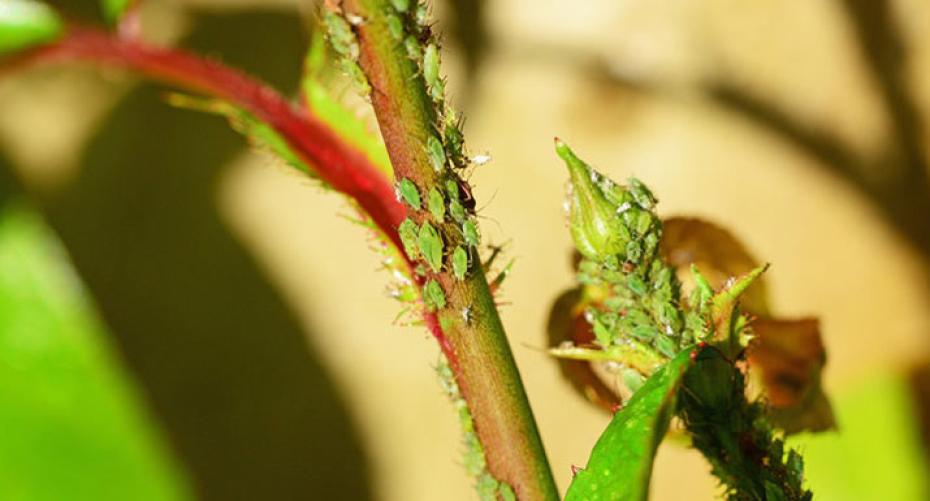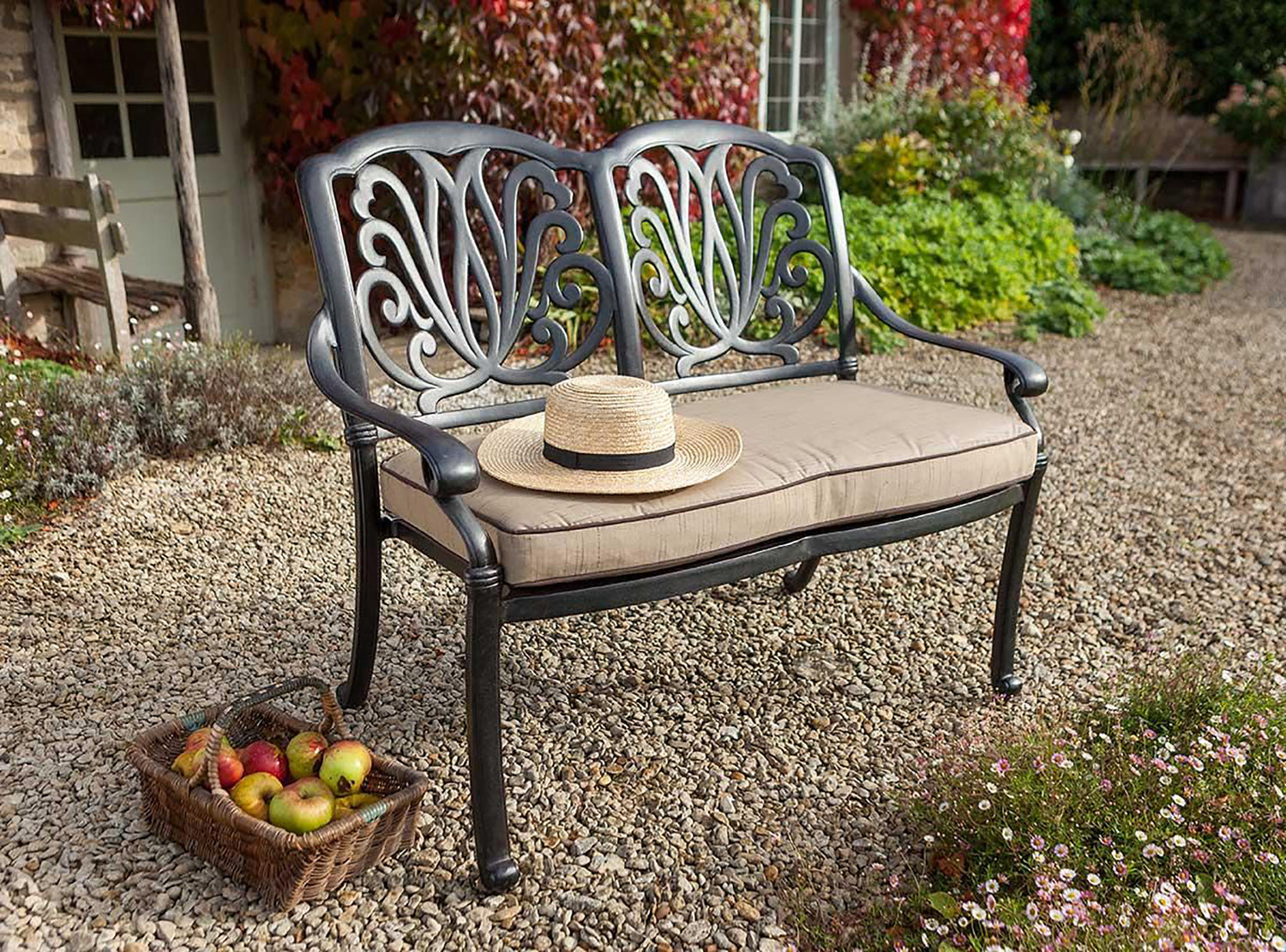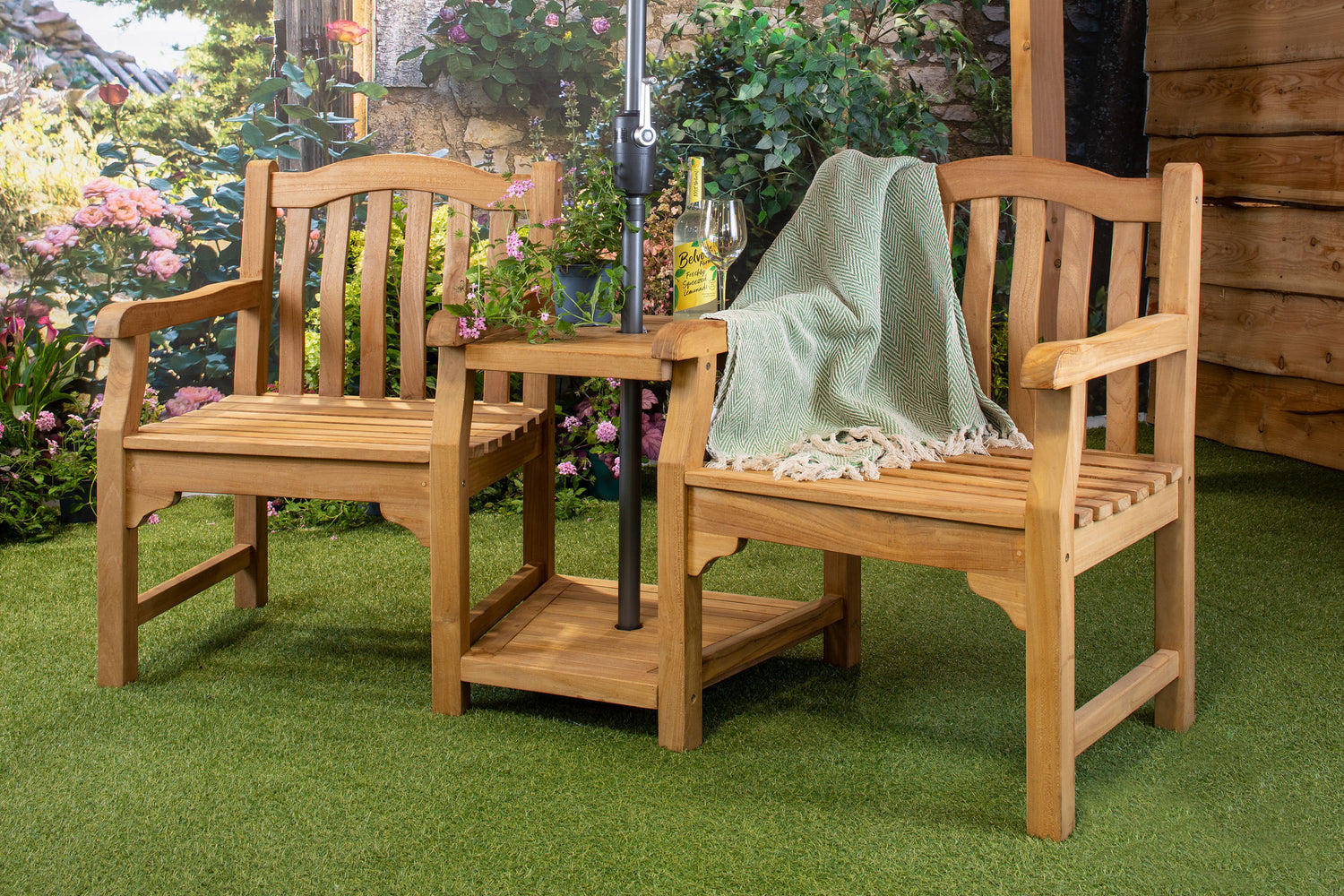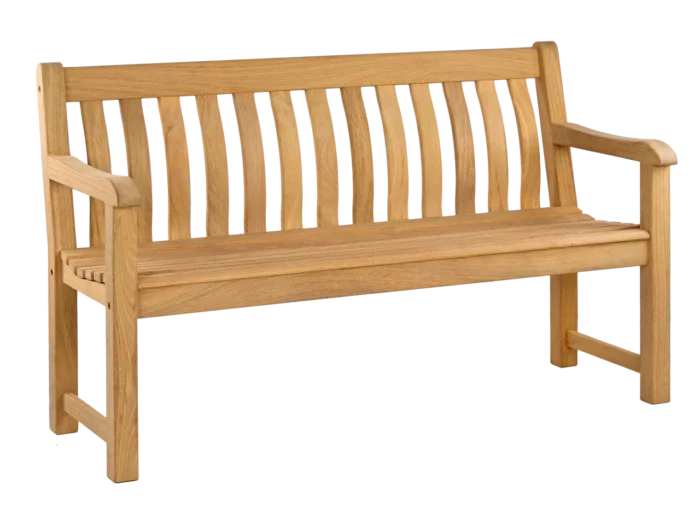Keep aphids under control with these handy hints and tips
Aphids can be the bane of a gardeners life, they distort foliage, can infect certain species with virus and they exude a sweet sticky substance called honeydew which attracts the growth of sooty fungus. This sooty fungus covers leaves in a black film which blocks sunlight, therefore retarding growth, and presents another problem to deal with. There are hundreds of species of aphids but the main ones that trouble us are the green and black species. They are tiny insects which can be found in huge clusters around the soft new growth at the top of plants and buds.
Females can give birth, without the need for a male, dozens of times over the growing season so colonies can soon grow from a few hundred individuals to hundreds of thousands. So in any control method it is important to destroy them all as they can fairly quickly build up significant numbers again. They can pass on viruses which can quickly spread through a crop; the main species affected are tomatoes, cucumbers, strawberries, raspberries, dahlias and tulips. If you find that you have infected plants pull them up and destroy them by burning or putting in the grey refuse bin; don’t put them onto the compost heap or into the green recycling bin.

Image courtesy of Jared Belson at https://www.pestpush.com
There is recent research which suggests that feeding ants could encourage predators to take the aphids. Ants love the sugary honeydew so ‘farm’ the aphids, moving them around the fresh new growth and protecting them from their natural predators. Professor Jerry Cross from the East Malling Research Association has suggested that by feeding the ants over summer with a 30% sucrose solution they ignore the aphids. The aphids then lose their protection and are picked off by their natural predators.

Coal tit
Methods of removal
- Encourage their natural enemies of hoverflies, lacewings and ladybirds. Plants which these beneficial insects love include catnip, clover, dill, mint, oregano and yarrow.
- Feed the birds and provide nest sites as small birds such as Blue Tits, Coal Tits and Wrens love aphids and they will soon clear them.
- Rub the aphids off between your finger and thumb.
- Blast them off every few days with a strong jet of water, don’t forget the underside of the leaves.
- Spray with a weak solution of washing-up liquid and water, as this kills on contact don’t forget the undersides of the leaves.
- Place 3 – 4 drops of essential oils; clove, peppermint, rosemary and thyme, in a hand spray then top up with water. This also kills the eggs and the larvae so don’t forget the undersides of the leaves and in the leaf axils.
- Into a litre of water mix a pinch of cayenne pepper and 1 tablespoon of washing-up liquid and spray the actual insects.
- A dusting of corn-flour is also said to work as it clogs up their internal organs.
- Chemical sprays made with natural pyrethrum, plant or fish oils. Again these are contact killers.
- Biological control is really effective but only works in a greenhouse.
- Aphids love nasturtiums so planting these will lure them away from your prize roses.
Preventative measures
- Don’t over-feed your plants with a high nitrogen fertiliser as this encourages a lot of new sappy growth which is exactly what the aphids love. Grow your plants a bit ‘hard’ so that they can cope with a slight infestation.
- Keep feeding the birds so that the aphids are always under control.
- Try and achieve a balance in your garden with as many plant varieties as possible which will encourage predators.




![Kingsbury-bench-05[1].jpg](http://www.hayesgardenworld.co.uk/cdn/shop/files/Kingsbury-bench-05_5B1_5D.jpg?v=1712162737&width=1500)
![Kingsbury-bench-01[1].jpg](http://www.hayesgardenworld.co.uk/cdn/shop/files/Kingsbury-bench-01_5B1_5D.jpg?v=1712161065&width=1500)
![tw17a-4947_0[1].jpg](http://www.hayesgardenworld.co.uk/cdn/shop/files/tw17a-4947_0_5B1_5D.jpg?v=1715609205&width=1500)
![tw17a-4947_tenbury_5ft[1].jpg](http://www.hayesgardenworld.co.uk/cdn/shop/files/tw17a-4947_tenbury_5ft_5B1_5D.jpg?v=1712161172&width=1500)
![tw17a-4952_tenbury_4ft[1].jpg](http://www.hayesgardenworld.co.uk/cdn/shop/files/tw17a-4952_tenbury_4ft_5B1_5D.jpg?v=1712161034&width=1500)
![thumbnail_IMG_1565-kik_2[1].jpg](http://www.hayesgardenworld.co.uk/cdn/shop/files/thumbnail_IMG_1565-kik_2_5B1_5D.jpg?v=1712226536&width=1500)
![thumbnail_IMG_1565-kik_1[3].jpg](http://www.hayesgardenworld.co.uk/cdn/shop/files/thumbnail_IMG_1565-kik_1_5B3_5D.jpg?v=1712159637&width=1500)



![WD-XgESA[1].jpeg](http://www.hayesgardenworld.co.uk/cdn/shop/files/WD-XgESA_5B1_5D.jpg?v=1712159609&width=1500)